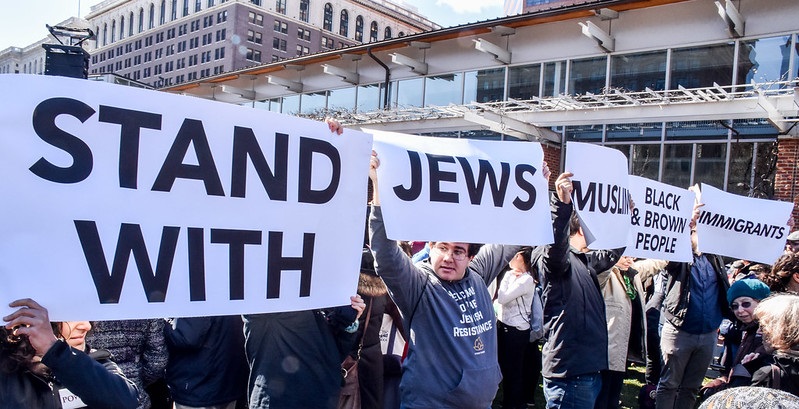
In 1998, in response to the brutal murders of a gay man in Wyoming and a Black man in Texas, the Federal Government passed the Matthew Shepard and James Byrd Jr. Hate Crimes Prevention Act. This legislation was followed by demands for additional hate crimes legislation at both the state and federal level, which were championed as progressive legislation to counteract violence against marginalized people.
As a Quaker organization long invested in challenging the injustices of the criminal legal system, the American Friends Service Committee (AFSC) was concerned about demands–however well intentioned–to implement harsher sentences of any kind. In 2001, AFSC published “In a Time of Broken Bones,” authored by Kay Wittlock. This publication on hate violence reflected the deep spiritual and social commitment of AFSC to address not only the most visible symptoms but the root causes of hatred, intolerance, and violence. It invited us to dialogue on hate violence and the limitations of hate crimes legislation.
Today, some 20 years later, in response to brutal violence against members of the Asian community and other instances of attacks on marginalized people, we are again hearing calls for stronger hate crimes laws.
While it is important that all targeted groups are included in laws that offer protection from discrimination, recent additions to hate crime legislation only further entrench our society in the U.S prison system. These laws attempt to address “hate” through increased sentencing for those convicted. This is troubling as it pushes aside the fundamental causes of bias and limits the possibilities for creating change. These laws create eerie precedents for future law enforcement and indicate that bias and hate are problems that only affect folks on an individual level. We need to instead address these issues on the appropriate societal scale, as intolerance is bred both culturally and systemically throughout this country.
Increased sentencing does not act as an effective deterrent of future hate violence, as it makes no attempt to address the beliefs and attitudes of anyone, including the perpetrator. Evidence suggests that the severity of a penalty does not deter acts of violence–it simply keeps U.S. prisons overcrowded. Abolitionists and reformers alike have spent decades trying to roll back harmful mandatory minimum sentences and sentencing enhancements because they are major drivers of mass incarceration.
Instead of creating harsher penalties that do little to create lasting solutions we need to focus on responses that will enhance community well-being. The first step is to prevent violence before it occurs. This can be achieved in part through education. We need to bring a curriculum to our middle and high schools that focuses on the causes of hate violence and the effect it has on young individuals and on impacted communities. We must look at the sources of bias within our community and explore positive, peaceful ways for youth to speak out against intolerance and violence. Such a curriculum would allow for students and facilitators to be the driving force in students’ understanding of the material instead of the media and opportunistic politicians. Workshops where students can learn about different cultures from one another, and widespread marginalization of communities of color, LGBTQ+ communities and others in the U.S., offer constructive and safe learning environments, while still providing necessary information in a straightforward manner.
We’ve seen firsthand the benefits of this approach in our work with young people around the world. Undoing racism, bigotry, and hate while appreciating our differences is a much more effective approach to hate violence than piecemeal legislation that only serves to cause more harm.
We also need different approaches to addressing harm and violence when they occur. Instead of using violent systems to address violence, we must ground our responses in the needs of those involved and their communities. We need transformative justice processes that are implemented to hold those who cause harm accountable and help survivors of violence heal.
And we need to build strong emergency response systems that don’t involve the police, who are just as likely to perpetuate further harm against marginalized people as they are to intervene against acts of hate. Instead, we should establish skilled response teams that will quickly be on the scene to help find solutions—for example, people trained in de-escalation and mediation skills, addiction and mental health counselors, and others who can help connect people to the resources they need.
We can’t incarcerate our way out of racism, homophobia, and bigotry any more than we can incarcerate our way out of addiction and poverty. As “In a Time of Broken Bones” lifts up, we must vision a form of healing justice that is rooted in an ethic of interdependence, nonviolence, accountability, and healing.